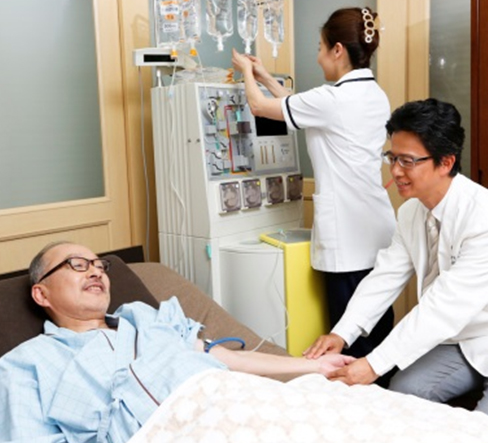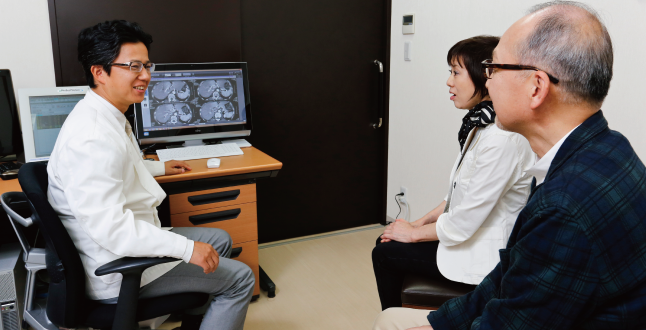Success Rate
What Is Immunotherapy?
Immunotherapy leverages the body’s own immune system to fight cancer, mutated cells, autoimmune disorders, and various infectious diseases. By stimulating or fortifying internal immune cells, immunotherapy delivers more precise attacks on cancer cells or pathogens while minimizing damage to healthy tissues. Compared to conventional treatments like chemotherapy and radiotherapy, immunotherapy generally has fewer side effects and allows patients to maintain a higher quality of life.
Is There a Known Success Rate for Immunotherapy?
If a patient is confirmed to be a candidate for a particular immunotherapy medication, they can refer to past clinical data and response rates. Throughout the course of treatment, regular evaluations—including blood tests and imaging studies—help assess the therapy’s effectiveness.
However, it is crucial to note that immunotherapy differs significantly from other treatments (such as chemotherapy or targeted drugs). One key factor is the patient’s immune function. If immune function is suboptimal—indicated by low lymphocyte counts or poor lymphocyte activity—responses to immunotherapy may be less favorable. Fortunately, therapies likeLAK (Lymphokine-Activated Killer) therapy can help enhance and improve immune capacity.
Dr. Yoichi Kato’s Success Rates
Having specialized in immunocellular therapy for many years, the Shin-Yokohama Kato Clinic—led by Dr. Yoichi Kato—is recognized as one of Japan’s prominent immunotherapy authorities, boasting substantial clinical experience and numerous successful cases.
Notably, many of Dr. Kato’s patients present with advanced-stage cancer, often showing multiple metastatic sites and posing significant treatment challenges. Yet even in these difficult scenarios, after three months of immunocellular therapy:
1. 68% of patients experience effective control of abnormal cell growth, with many showing reductions in multiple tumor sites.
2. 8% achieve complete remission (CR), wherein tumors completely disappear.
SKC Immune Testing: How to Assess Your Immune Status
Before initiating immunocellular therapy at the Shin-Yokohama Kato Clinic, Dr. Kato typically performs SKC Immune Testing, repeating it periodically during and after treatment. This test can:
1. Evaluate Immune Strength
By analyzing immune cells—such as lymphocytes, dendritic cells, and macrophages—regarding their quantity, activity, and overall balance.
2. Monitor Cancer Cell Activity
Changes in specific blood markers may reveal disease progression or the effectiveness of therapy.
3. Provide Lifestyle Improvement Strategies
If immune function is inadequate, Dr. Kato offers dietary, sleep, and stress-management recommendations to enhance immunotherapy outcomes.
4. Risk Assessment and Prevention
Even if no serious illness has been diagnosed, this test can help reveal one’s health risks and enable early prevention.
Comparisons of pre- and post-treatment test results allow a clear view of how immunocellular therapy has benefited the patient and provide a clearer indication of immunotherapy’s success rate and impact.

Lymphocytes: A Critical Key to Immunotherapy Success
Lymphocytes include killer T cells (CD8), helper T cells (CD4), NK cells, B cells, and others. They work in tandem with dendritic cells and macrophages to form a robust defense system against bacteria, viruses, and cancer cells.
1. Age and Lymphocyte Counts
Research indicates that lymphocyte activity peaks around age 20, then gradually declines. By around age 70, activity significantly decreases—partially explaining the higher prevalence of cancer and serious illnesses in older populations.
2. Bridging the Immune Gap
When tests reveal insufficient lymphocyte count or function, Dr. Kato often applies LAK cell therapy to expand lymphocytes rapidly, restoring the immune system to a threshold that can improve immunotherapy success rates.

Multiple Factors Influencing Immunotherapy Success
1. Early Detection and Intervention
Starting immunotherapy at an earlier disease stage often improves the odds of containing and halting serious illnesses.
2. Combination Therapy
Single treatments—like chemotherapy or radiotherapy—sometimes fall short of comprehensive efficacy. Blending immunocellular treatments with targeted drugs or other therapies may yield synergistic benefits.
3. Maintenance of Immune Function
Patients with low lymphocyte counts or reduced immune cell activity should receive tailored therapies (e.g.,LAK cell therapy, dendritic cell (DC) therapy) to strengthen their immune arsenal.
4. Healthy Lifestyle and Nutrition
Poor sleep, excessive stress, and imbalanced diets can weaken your immune defense. Adhering to a physician-recommended strategy for diet, exercise, and rest may bolster the effectiveness of immunotherapy overall.

